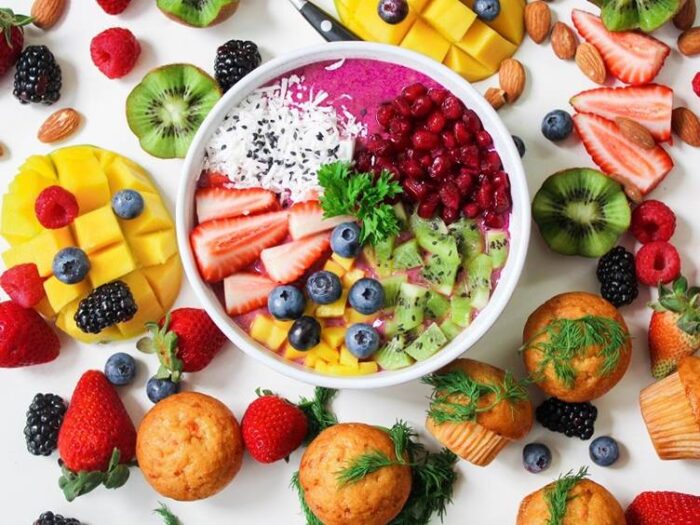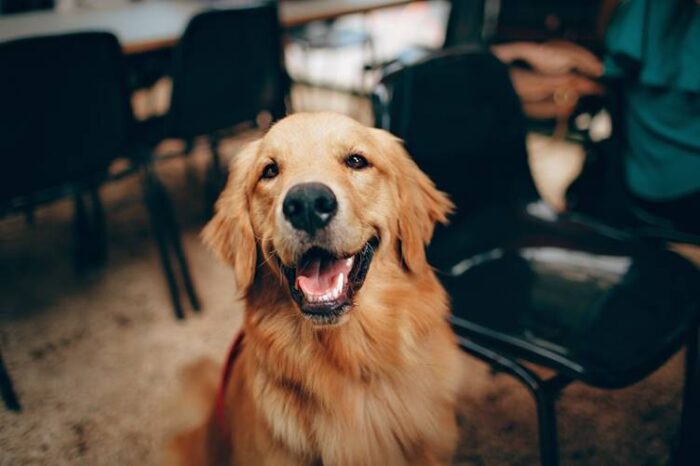
Nutrition For Your Dog – What Kind Of Foods Should You Give Him?
A lot of the foods we humans eat can be given to dogs. But as their owner, we need to make sure that they get all the important nutrients that they need in order to be healthy. As a fur parent, it’s a struggle if our dogs are picky eaters. Good thing is that there are now some dog food that are made especially for them such as https://hungrybark.com/blogs/nutrition/dog-food-for-picky-eaters.
However, we still need to introduce them other food that may pique their interest. In this guide, we’ll be giving you a list of foods you can and cannot give your dog.
What Foods Are Safe For Dogs To Eat?
Here are some healthy foods which you can give to your dog:
Green Beans
These delicious vegetables contain lots of fiber. This can make a great filling meal for your dog. Green beans also contain a lot of minerals and vitamins such as vitamins K, C, A, and B6. They also contain calcium and iron.
Kale
Kale contains iron, vitamin A and vitamin K. These vitamins can help maintain their immune system, improve eyesight, and build stronger bones.
Spinach
This vegetable is packed with nutrients like magnesium, calcium, folic acid, potassium, and iron. Spinach also contains vitamins K, B9, B6, C, and E.
Beets
Beets contain potassium, fiber, manganese, folate, and vitamin C. These vitamins and minerals help strengthen your dog’s immune system, improve his digestion, and give him a healthier coat.
Celery
This healthy vegetable contains antioxidants such as vitamins A and C. These vitamins play a big part in keeping your dog healthy.
Sweet Potatoes
Sweet potatoes are rich in beta-carotene. They improve digestion, thanks to the high quantity of fiber they contain. They also contain manganese, vitamin C, and vitamin B6.
Carrots
Carrots are rich in potassium, biotin, vitamin B6, vitamin A, and Vitamin K.
Butternut Squash
Butternut squashes are rich in vitamins such as C, B6, and A. These vitamins help improve their vision and boost their immune system.
What Foods Aren’t Safe For Dogs To Eat?
Now that we have discussed which foods are safe for dogs, let’s take a look at some foods you should never feed them:
Ice Cream
As we are all aware, there is a lot of milk in ice cream. Unfortunately, when dogs grow, their systems don’t know how to process milk. As a result, giving your pet ice cream could lead to vomiting, bloating up, or even diarrhea.
In addition to this, ice cream contains a ton of sugar. Taking too much could cause health problems in both dogs and humans. Giving your dog small quantities of ice cream at a time won’t be enough to cause any problems. However, it is advised that you avoid giving this to your dog completely if he is suffering from dairy intolerance, diabetes, or obesity.
Onions
Onions contain N-propyl disulfide; this compound is very harmful to dogs. Onions can seriously damage a dog’s red blood cells, which in turn, affects oxygen flow. This could end up leading to anemia. If the case worsens, your dog might have to get a blood transfusion in order to survive. It is advised that you avoid feeding your dog onions in any form.
Chocolate
Every pet owner have heard this at one point or the other. However, not many people know why. Chocolate contains theobromine and caffeine; these compounds can affect your dog’s nervous system and significantly increase his heart rate.
Giving your pets small quantities of chocolate at a time won’t harm them. However, it is important that you remember that not all chocolates have the same levels of toxicity. Watch for vomiting, abnormal heart rate, diarrhea, and seizures. These could be signs of chocolate poisoning. If possible, avoid giving your dog chocolates if he/she is old, or has cardiovascular issues.
Garlic
Garlic contains a compound known as thiosulfate; this substance is dangerous for dogs, but safe for humans. Thiosulfate damages their red blood cells. This could lead to haemolytic anaemia. Signs of garlic poisoning include weakness, lethargy, abdominal pain, depression, loss of appetite, and dehydration.
Nutmeg
Most people won’t give this to their dogs anyway. Nutmegs contain myristicin which is very toxic to dogs. It can end up being even more serious if your dog eats a large quantity of nutmeg. Side effects of dogs eating too much nutmeg include dry mouth, stomach aches, high heart rate, seizures, and high BP.
Salty Foods
Salt itself isn’t really dangerous to dogs. However, consuming large amounts of it could cause sodium ion poisoning. Symptoms of excessive salt consumption include high body temperature, vomiting, diarrhea, depression, and excessive thirst.
Yeast Dough
Yeast ferments over time and produces alcohol. If your pet consumes yeast dough while it is raw, it could lead to alcohol poisoning. In addition to this, giving your dog yeast dough could also cause labored breathing and weakness.
Pecans
Giving your pet large amounts of pecans can be very dangerous. Pecans contain a substance dangerous to dogs. This substance is known as juglone. Symptoms include gut obstruction and stomach upset.
Xylitol
This is an artificial sweetener used by various manufacturers. If a dog consumes xylitol, it might cause hypoglycemia, which could lead to blood clotting problems and liver failure.
This compound is found in gum, candy, baked goods, diet foods, and toothpaste. It is advised that you keep these items out of your dog’s reach.
Flavored Popcorn
Giving your dog some pieces of plain popcorn isn’t harmful. However, it is important that you never give your dog buttered or salted popcorn. Unflavored popcorn can be a good snack for your dog. That said; remember to remove any unpopped kernels in order to prevent stomach upsets.
Garlic Bread
Garlic isn’t the only problem here. This kind of bread contains unhealthy quantities of butter, cheese, oil, and herbs. These could end up giving your pet an upset stomach. Besides, garlic bread doesn’t really have a nutritional value for dogs. All it does is stuff your pet’s body with unnecessary amounts of fat and calories. On the bright side, the effects are not fatal. However, you should keep a close eye on your pet if he has consumed garlic bread.
This isn’t an exhaustive list by any means. Click here to see more foods you shouldn’t feed your dog – As many as 197.
Conclusion
It is important that you carefully choose the kind of foods you feed your pet. Some are really healthy for them while some might cause serious health problems. If you still have any doubts about what you should give your pet, please consult a veterinarian.









Pingback: 6 Signs Your Dog Has Food Allergies - It's Free At Last
Great list for dog owners.I knew chocolate was bad for dogs but didn’t know about the other things.
All good things to keep in mind. We are hoping to get a dog very soon.
Thank you for sharing this amazing advice!